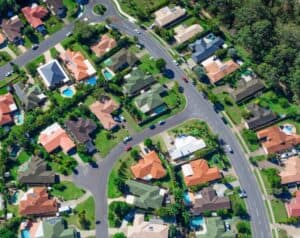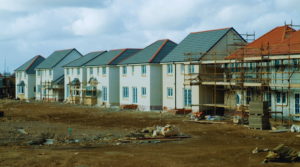Reserve fund studies are a crucial long-term financial analysis tool for any Homeowner’s Association (HOA).
Why? Well, a reserve fund study provides valuable long-term financial information. In California, reserve studies are also required by law — and must be kept up to date with relevant costs and prices. Reserve studies are also helpful for property managers, boards of directors, and developers as well.
In this guide, we’ll show you how and why reserve studies matter. But first, let’s explore what a reserve study is and who can — and should — conduct a reserve study for your HOA.
What is a Reserve Study?
A reserve fund study offers critical insight into the repairs a community and its buildings require over the long-term future.
For example, a reserve study may examine the current condition of a community pool. It will also estimate long-term maintenance and the replacement costs involved in repair work like pool foundation and roofing fixes.
Based on the results of a reserve study, the HOA will know precisely how much they will need to pay into their reserve fund on an annual basis.
Who should perform a reserve study?
While any board member or HOA manager can conduct a reserve study, it’s best to hire a reserve specialist.
A reserve specialist knows precisely what to look for and how to calculate the reserve fund amount best. Numerous reserve study guidelines must be followed exactly, from determining funding goals to developing a reserve components list. You can learn more about the reserve study guidelines here.
Hiring a reserve specialist also takes away any liability from the board or HOA manager.
So, now you know what a reserve study is and who can conduct one. But why are they important? Well, let’s dig a little deeper into the dangers of an underfunded reserve fund.
The dangers of an underfunded reserve fund
Conducting annual reserve studies prevents an HOA from having underfunded reserve funds.
An underfunded reserve fund can present several dangers to an HOA:
- An HOA that’s not fully funded will likely deter buyers from being interested in investing in the community.
- Underfunded reserves impact a board’s decision making and might encourage them to defer repairs. Eventually, the repairs become emergencies. The expense to fix these emergencies becomes much more costly.
- Trying to add money to an underfunded HOA reserve will feel like a waste to current owners. The reason for this is because they won’t see the benefits of increased payments until much later.
- Inadequate reserve funds can also prevent the HOA from applying for and receiving Federal Housing Administration (FHA) funds. FHA funds or loans provide federal assistance to give HOAs adequate reserve funds.
The reality is, many HOAs are undercapitalized. This means that the HOA must either perform a special assessment involving the owners, increase dues and contributions, or borrow money from external sources.
The good news is, it’s easy to avoid or prevent problems created by underfunding if you use the right budget planning tool.
And that’s why a reserve fund study is such a crucial part of running a successful HOA!
The benefits of reserve studies for communities and organizations
Conducting regular reserve studies offers communities and organizations many valuable benefits:
- Reserve studies establish a budget for building repairs and infrastructure replacements. Both repairs and replacements are critical to the success of the HOA.
- By providing a predictable cost, you offer owners complete transparency. If you need to increase fees, owners will likely understand
- A reserve fund study also enables board members and homeowners to make informed decisions. Informed decisions help to protect the value of the property through quality maintenance and repair.
- It reduces reliance on internal or external sources of funding. When repairs or emergencies arise, the budget is accessible and available for use.
- A reserve fund study helps an HOA project future expenses and collect adequate reserve funds. Both increase the property value, which is a huge benefit to both the owners and the wider community.
Calculating the ideal amount for your HOA reserves
Completing a reserve fund study is crucial to keeping your HOA’s reserve fund balanced.
However, to complete an accurate reserve study, you must calculate the ideal reserve fund amount. Calculating the ideal amount ensures you know how much you need for your HOA reserves.
It’s important to remember that reserve fund fees impact your owners. Calculating the ideal amount for your HOA reserve fund also ensures that your members don’t overpay.
When residents can’t afford your reserve contribution amount, it will become impossible to sustain contribution levels.
So, to calculate the ideal HOA reserve amount, use this general rule:
Your reserve fund amount should cover costs that the annual budget doesn’t cover.
Follow these key steps to calculate the ideal amount for your HOA reserves:
- Calculate the net present value of your future anticipated repairs. Use a conservative interest rate to calculate the net present value. For example, a one-year, average CD rate is around 1.25%
- Add this amount to the sum of your insurance deductibles and copays.
- Add the discounted present value of all HOA planned improvements and additions.
Tips for maintaining healthy HOA reserves
So, how can you and your HOA board go about maintaining healthy HOA reserves?
Complete a reserve fund study every few years
Reserve studies aren’t a one-time event. Repair and maintenance issues crop up all the time. What’s more, a community’s needs and wants change over time, too.
Since you’re dealing with so many fluctuating variables, conducting a reserve fund study every few years will give you an up to date calculation as to whether or not you’re maintaining a healthy HOA reserve.
Keep your reserve fund study up-to-date.
In addition to a complete reserve fund study, you should also continue to update your current reserve fund study throughout the year (or whenever possible). The prices indicated in the reserve study should reflect inflation and current costs.
Remember, in the state of California, a reserve study is required by law. You must complete one at least every three years. The board must also review the reserve study annually.
Make your reserve contributions reasonable.
It’s often difficult to convince owners of the necessity of reserve contributions. Many owners don’t see the value in paying upfront for future maintenance and repairs.
That’s why it’s essential to keep your reserve contributions reasonable. Reasonable contributions will help to attract and keep owners over the long-term.
The bottom line is that without a reserve fund, you won’t have the financial resources to provide for the community. A lack of funds leads to disrepair, poor management, and a lack of interest in property investment.
Expressing this to owners while keeping reserve contributions reasonable will help to keep your fund well balanced.
Understand what reserve funds cover
There’s a big difference between reserve funds and other HOA fees or dues.
Reserve funds cover large expenses like replacing or repairing a roof or re-paving the parking lot. They also cover any large emergencies or unexpected repairs, like a broken water main or a pool leak.
Reserve funds don’t cover monthly, recurring expenses like utilities, for example. Those fees require a different fund. A reserve fund study should only include reserve fund expenses.
Ready to learn more?
Reserve fund studies are a critical financial tool for any HOA.
Conducting a reserve study provides valuable information that helps an HOA successfully budget for the long-term.
Underfunded reserve funds can lead to many difficult problems. This is why you should learn everything you can about developing and maintaining a healthy reserve fund.
Do you want to learn more about reserve fund studies? Learn more by viewing the California Builder Services reserve study presentation or looking at our discussion of reserve study guidelines.
Contact our team of trained professionals who specialize in the DRE approval process and get your questions answered today!








